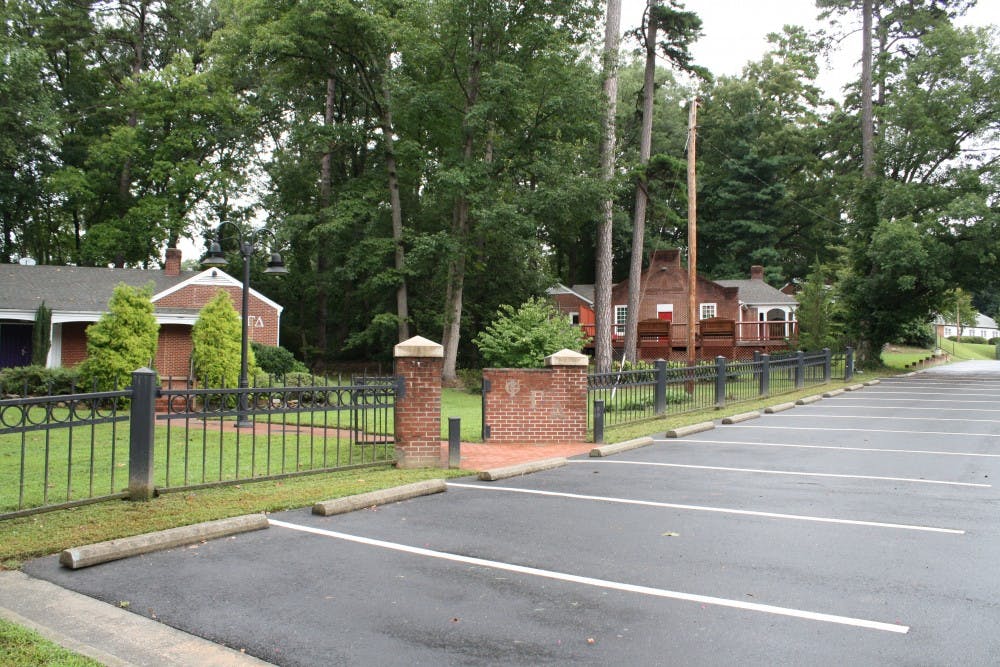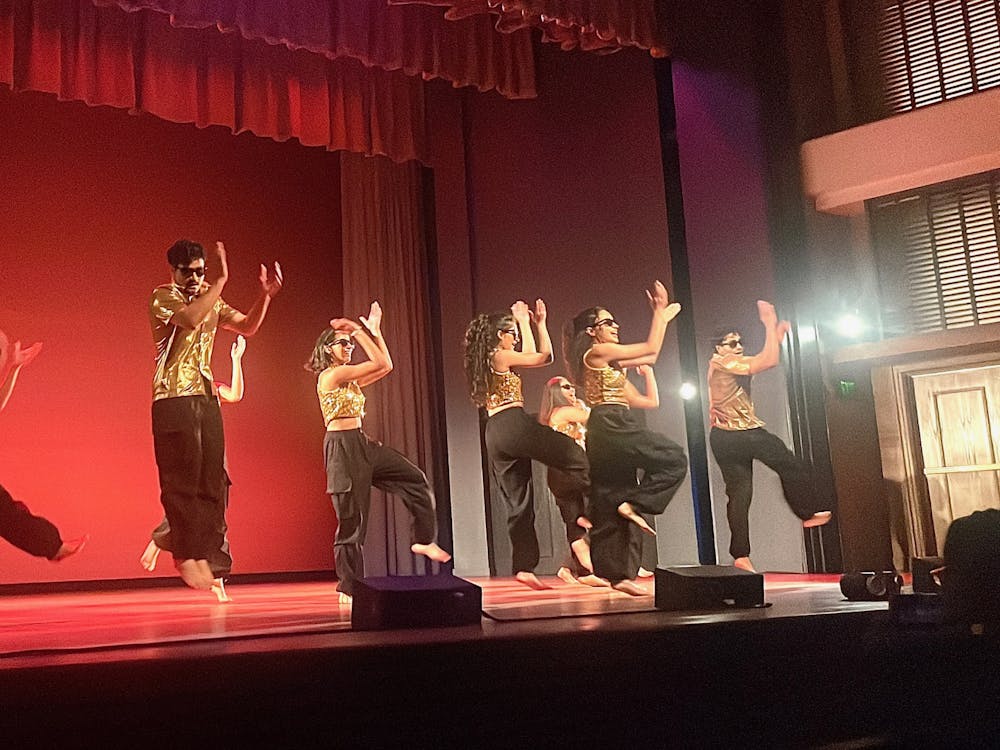Fraternities at Richmond date back to 1870, and the university officially recognized them in 1912, Meg Pevarski, assistant director for Greek life, said.
According to Reuben E. Alley in his book "History of the University of Richmond," prior to lodges, fraternities socialized in off-campus houses they rented or rooms in the dorms.
But there are contradicting facts as to when the first on-campus lodge was actually created and by which fraternity.
According to Alley, a committee was created in 1926 to address mounting requests from fraternities for on-campus chapter houses. Lots available for fraternity housing were set aside by the Board of Trustees in 1928.
Phi Kappa Sigma finished building its chapter house in 1929, according to Alley.
However, a 1952 Collegian article recorded the first organizations to occupy what came to be known as the “lodges” were Phi Delta Theta, Phi Gamma Delta and Sigma Phi Epsilon –– starting what became referred to as Old Fraternity Row.
By 1958, there were 10 lodges, which were divided between Old and New Fraternity Row, according to The Collegian.
The university provided the land for the lodges to be built on and loans for the construction, increasing official oversight of Greek life.
“When [the university] bought the lodges, we became responsible for their upkeep and maintenance,” Pevarski said. “Additionally, they were then considered on-campus spaces, so our oversight from a programming perspective was enhanced.”
There are currently nine lodges, all located across from the Robins Center. Unlike many other fraternity houses at Southern universities, the lodges have never been used for residential housing by their members. According to The Collegian, the fraternities proposed adding on to the lodges in 1968 to accommodate housing for members to live in, but the university rejected the idea because of the cost.
A large percentage of UR students have been involved in Greek life since its start. According to Pevarski, in the spring of 2018, 35 percent of male students on campus belonged to a fraternity, and 50 percent of females had joined a sorority.
“When I was there back in the '80s, it was the entire social life,” said former Pi Kappa Alpha member Joel Getis, '88. “Every Friday and Saturday night, that’s where the parties were.”
Enjoy what you're reading?
Signup for our newsletter
Pi Kappa Alpha’s charter was revoked in 2006 after a series of infractions, including possession of marijuana and hosting unregistered parties.
A shift in the drinking culture came in the 1980s as the legal age rose from 18 to 21.
“It was an interesting time because my freshman year is when the drinking age changed,” Getis said. “When I showed up, most students were legal to drink because it changed that summer, so we had been grandfathered in. If you made the age, you could still drink, so that was a lot different because by my senior year it was only seniors who were legal. We were supposed to be checking IDs all four years, but they were much more strict by my senior year.”
Junior Brad Schuermann belongs to Delta Kappa Epsilon, a fraternity that doesn’t have a lodge, but he frequented lodges often as an underclassman.
“It was always the highlight of the week," Schuermann said. "Lodges usually are open for everyone to come in, so being able to have that for kids who are new here is really nice to be involved quickly.”
His father was a Theta Chi member at the university and graduated in 1988.
“When my dad went here, there were more lodges, and some of the frats were in different places, like Theta Chi was in New Fraternity Row –– past the parking lots,” Schuermann said. “Things were much more relaxed then. It wasn’t really regulated, whereas we can’t have kegs nowadays. To him, the lodges were the most important part of the party scene, whereas now we have a lot more off-campus parties.”
Contact news writer Meredith Moran at meredith.moran@richmond.edu.
Support independent student media
You can make a tax-deductible donation by clicking the button below, which takes you to our secure PayPal account. The page is set up to receive contributions in whatever amount you designate. We look forward to using the money we raise to further our mission of providing honest and accurate information to students, faculty, staff, alumni and others in the general public.
Donate Now



